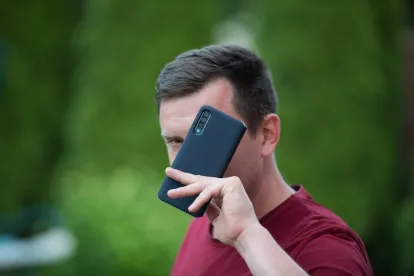The TCPA has a major impact on the political season, as we have covered here, here and here.
But it is not just campaigns that are being impacted by the TCPA’s broad restrictions on consumer outreach—political pollsters are also being hamstrung by the TCPA and, at times, sued in massive class actions.
In Drew v. Am. Directions Research, Grp., Case No. 20-cv-00402, 2020 U.S. Dist. LEXIS 191780 (N.D. Ill. October 16, 2020) a company conducting a voter “survey” is caught in a TCPA class action alleging they sent autodialed (robo) texts without the express consent of the called party.
The texts at issue read:
MICHAEL, We’re texting voters about local issues and your opinion matters. Please click to participate: [website address].
Although the Complaint does not specify the purpose of the texts, the company’s website references COVID attitude surveys so it is plausible the texts were sent in an effort to solicit information on voter attitudes on this subject. The website reads: “How exactly is the novel COVID-19 outbreak impacting consumer attitudes and behaviors? We are collecting responses from 200 US residents each day to help you navigate the ever-evolving marketplace, and making the data publicly available in a near real-time dashboard. Click the button below to access, interact with, and trend results.”
In Drew, the Court focused on the highly impersonal nature of the text at issue. The fact that the text vaguely referenced soliciting “voters” to participate in a “survey” highly suggested the use of mass text blasting. Moreover the fact that Plaintiff alleged Defendant bought lists of consumer information—including phone numbers and first names—accounted for the “Michael” appearing in all caps in the obviously templatized text message.
Importantly, the Drew court is within the Seventh Circuit, which means the rule of Gadelhak applies. That means the TCPA will only prevents texts if they are sent from a system that calls randomly or sequentially. Given the highly generic nature of the messages in Drew, however, the Court had little trouble finding that the messages may have been mass blasted to concocted numbers. (Notably this is at odds with the specific allegations that the numbers were obtained from a purchased “list” and not generated by the dialer—so I definitely see where Defendant was coming from with their motion to dismiss.)
In the end Drew shows that the TCPA remains highly problematic for pollsters, surveyers, and-of course-political campaigns. The TCPA contains no exceptions for calls made for political or information-gathering purposes. If you use technology regulated by the TCPA you MUST have the express consent of the called party to call or text a cell phone—period. And even in jurisdictions where the TCPA is narrowly interpreted, the use of highly templatized or generic messages might land you in hot water—even if your technology ultimately does not meet the statute’s definition.
And, of course, the Supreme Court is set to decide—once and for all—what technology the statute applies to this term. The Plaintiff’s lawyers just filed their hard-hitting brief and we should know a lot more come oral argument on December 8, 2020.




 />i
/>i

